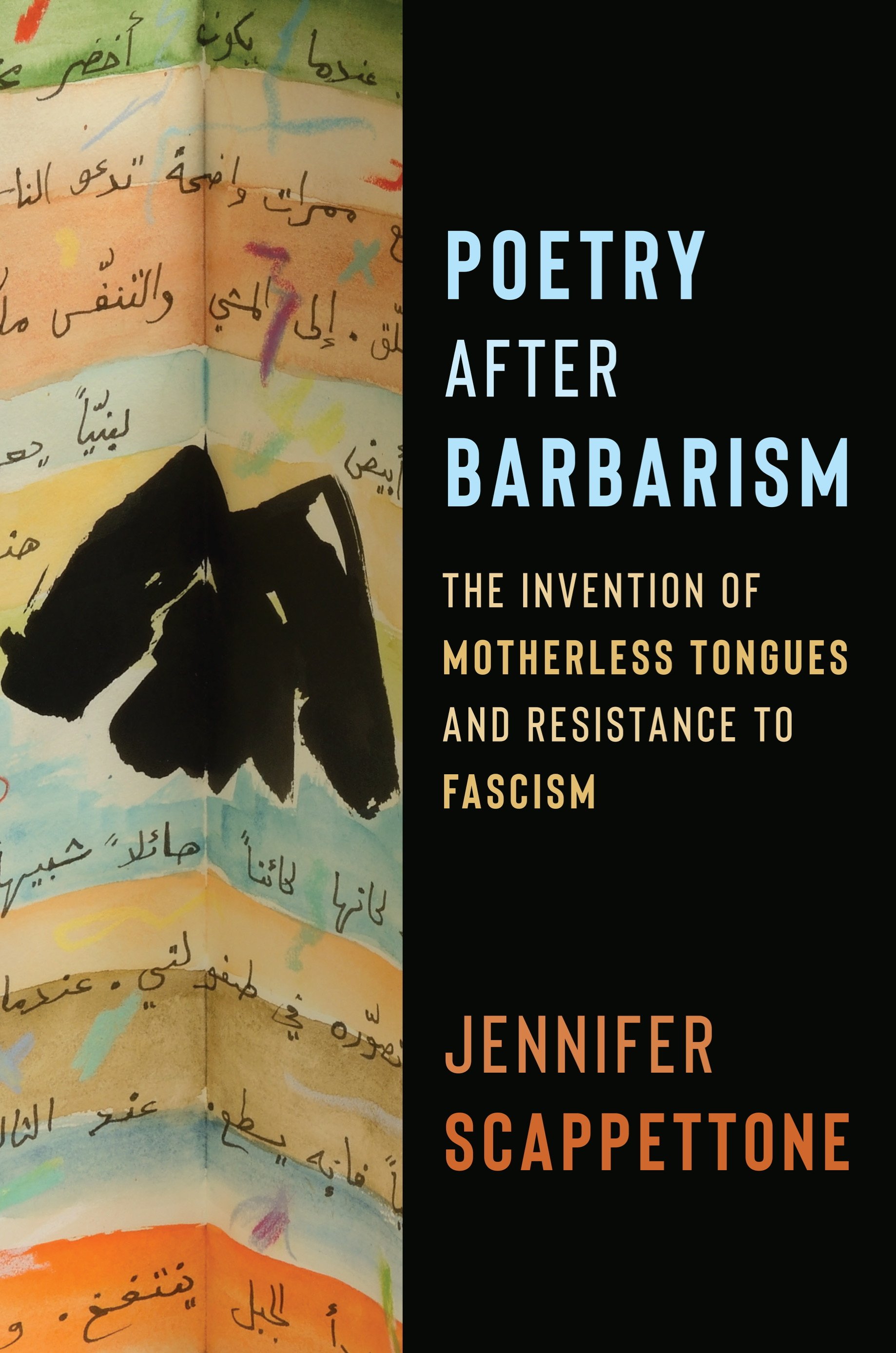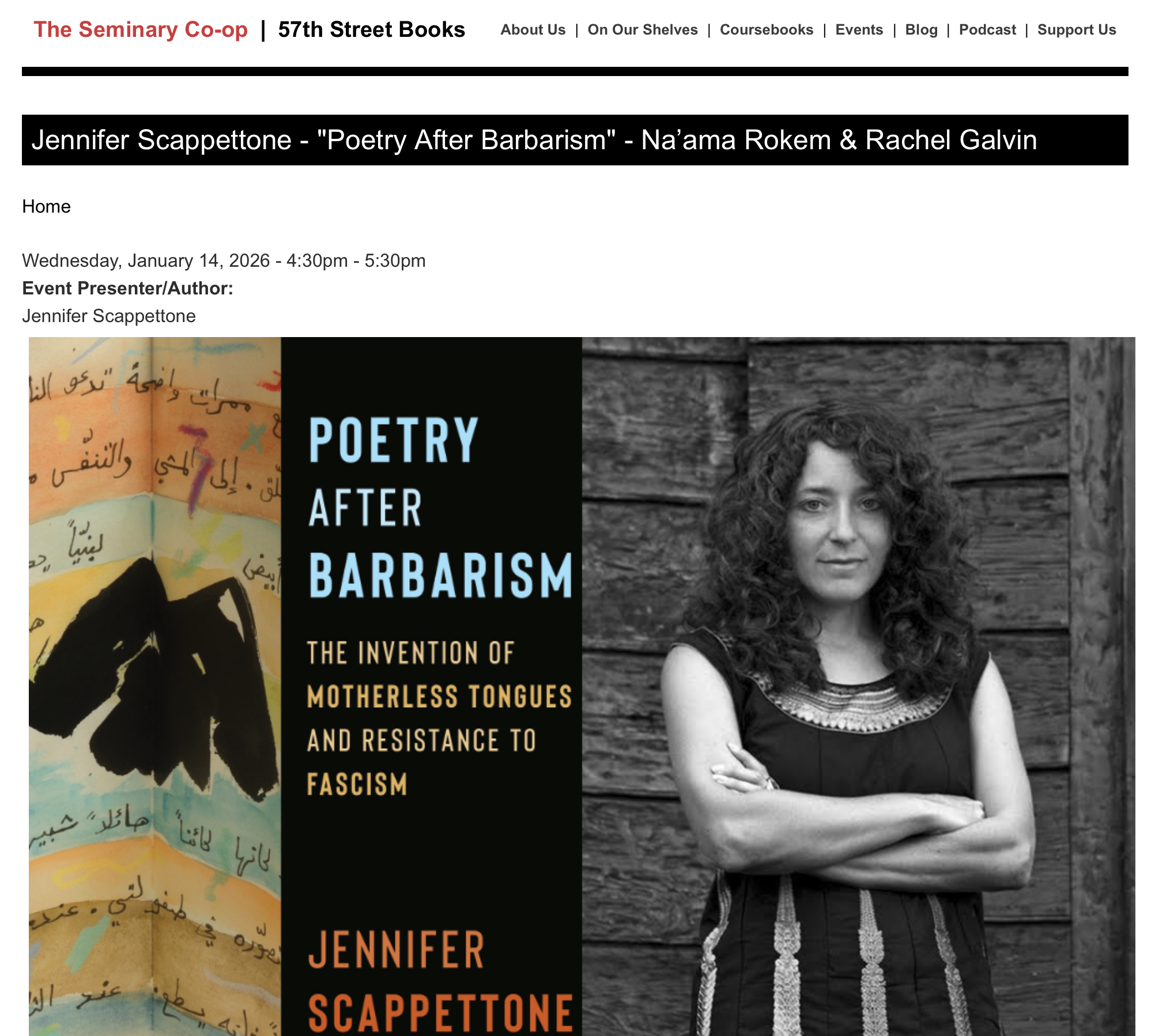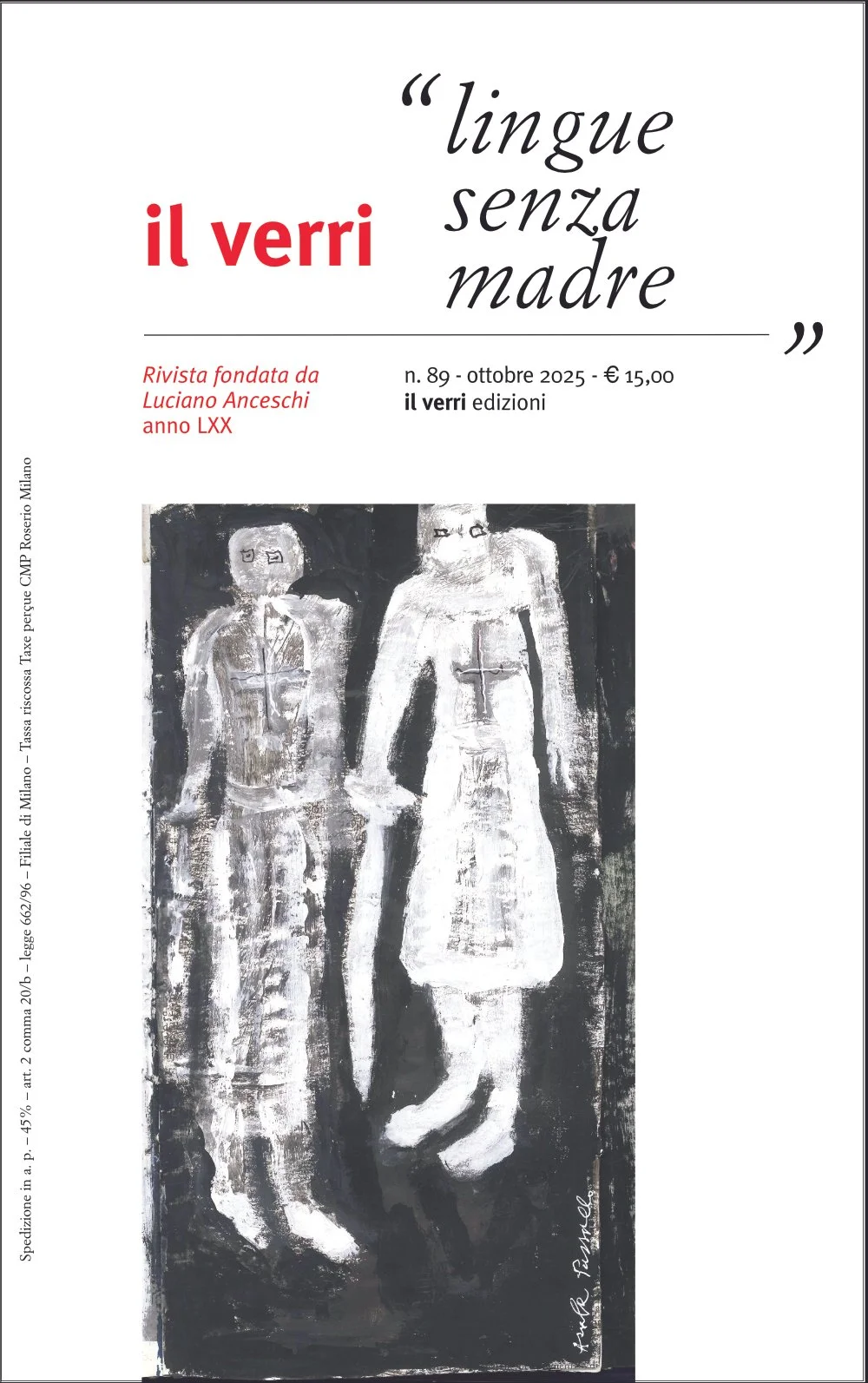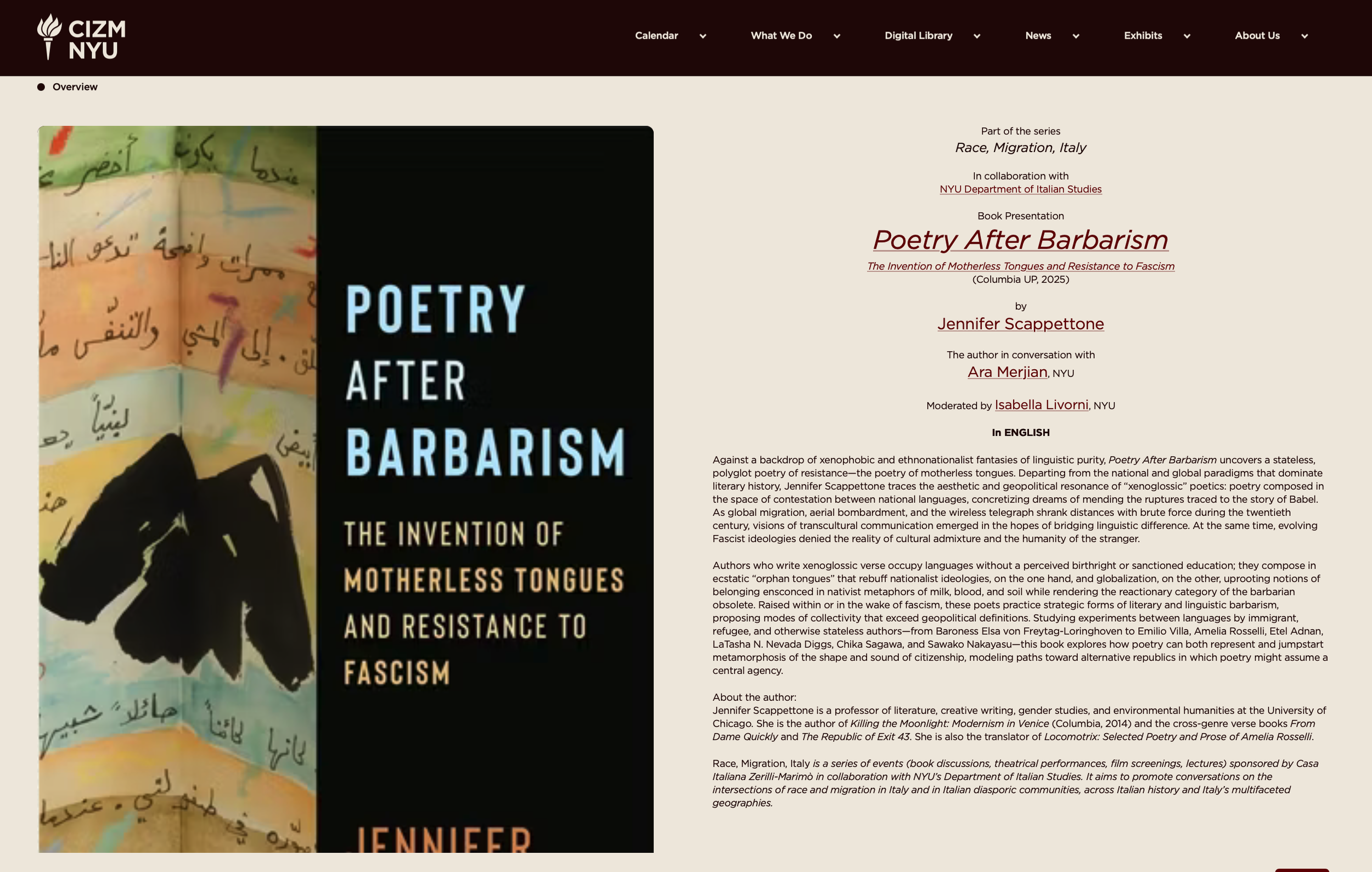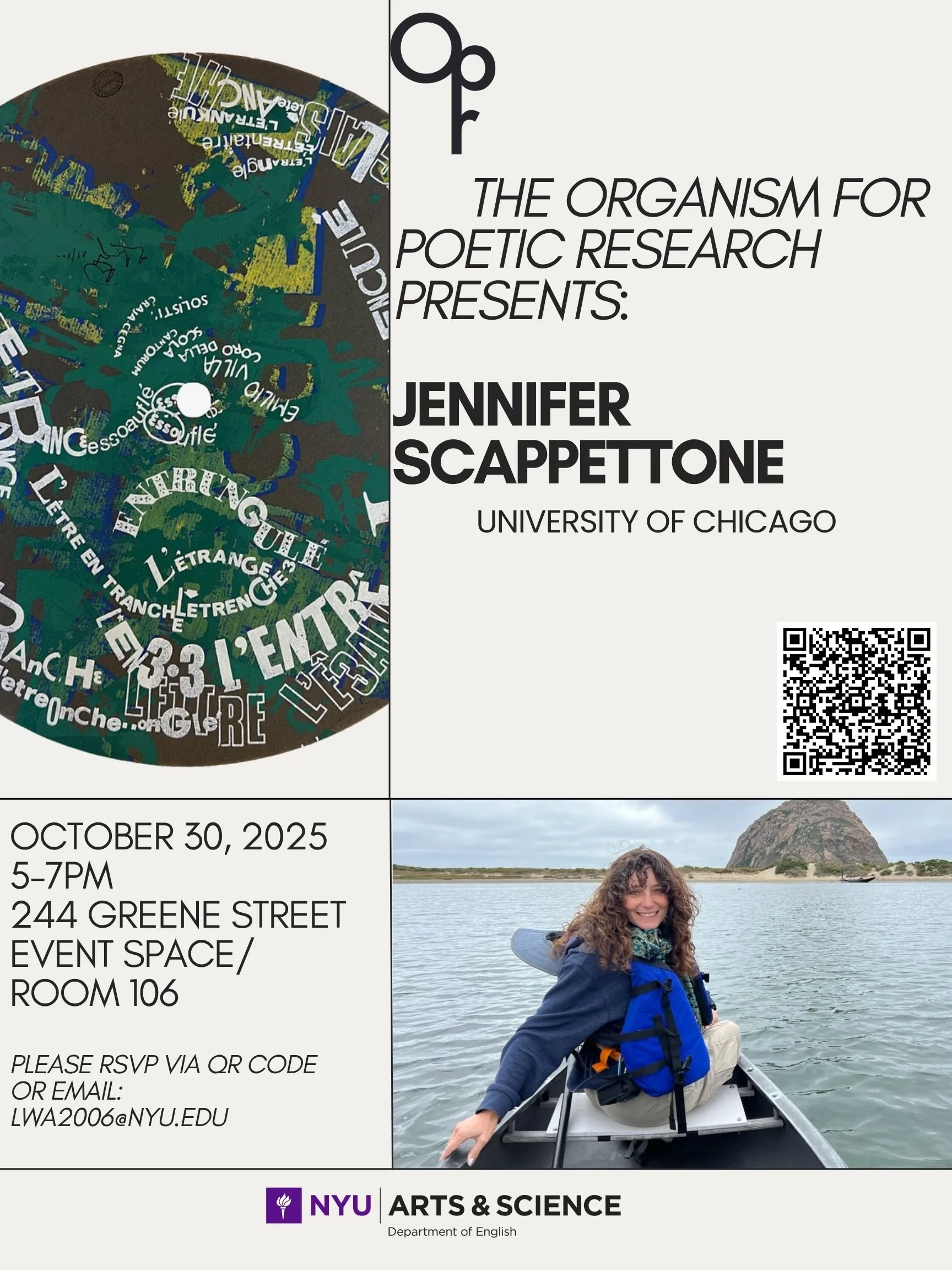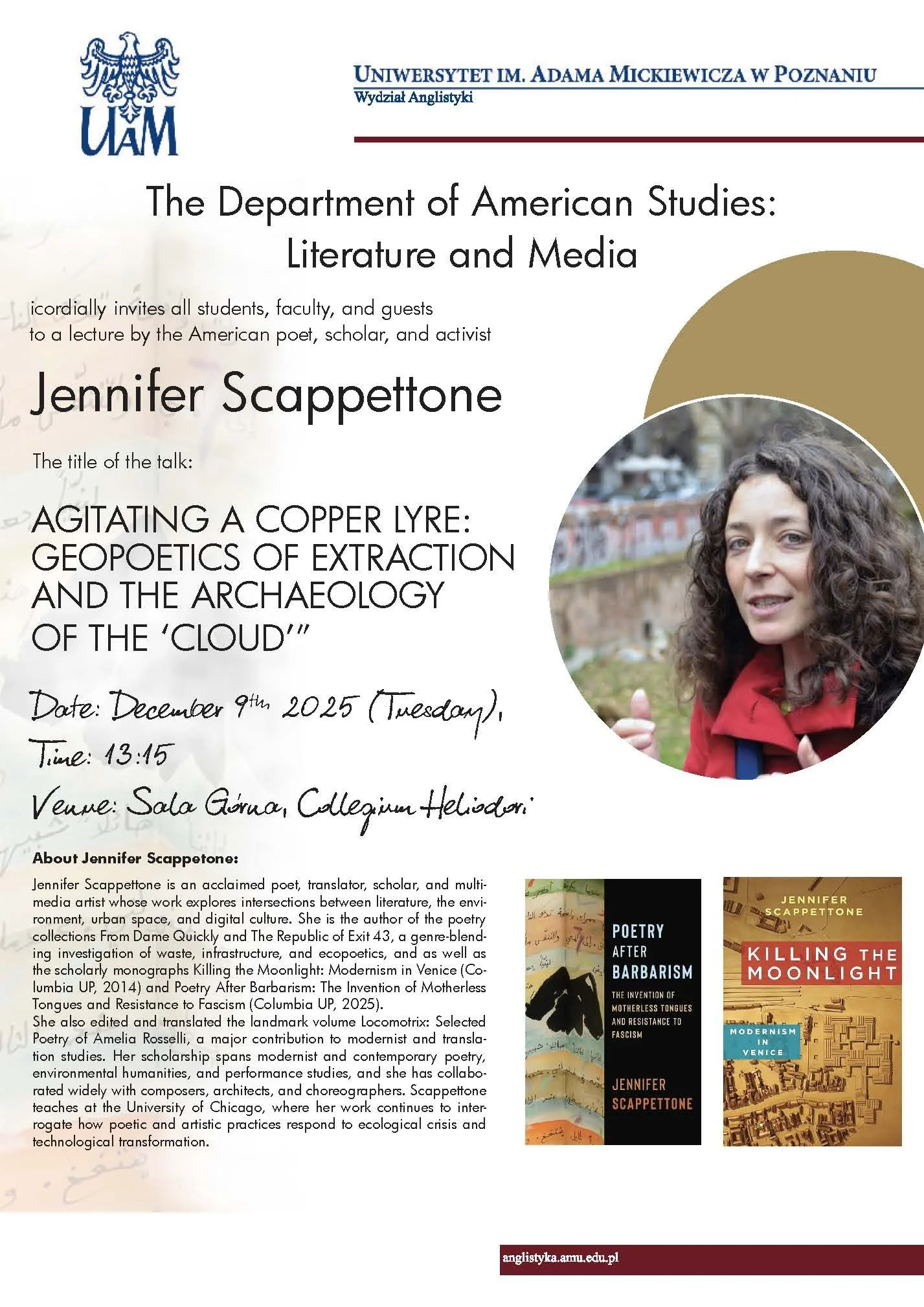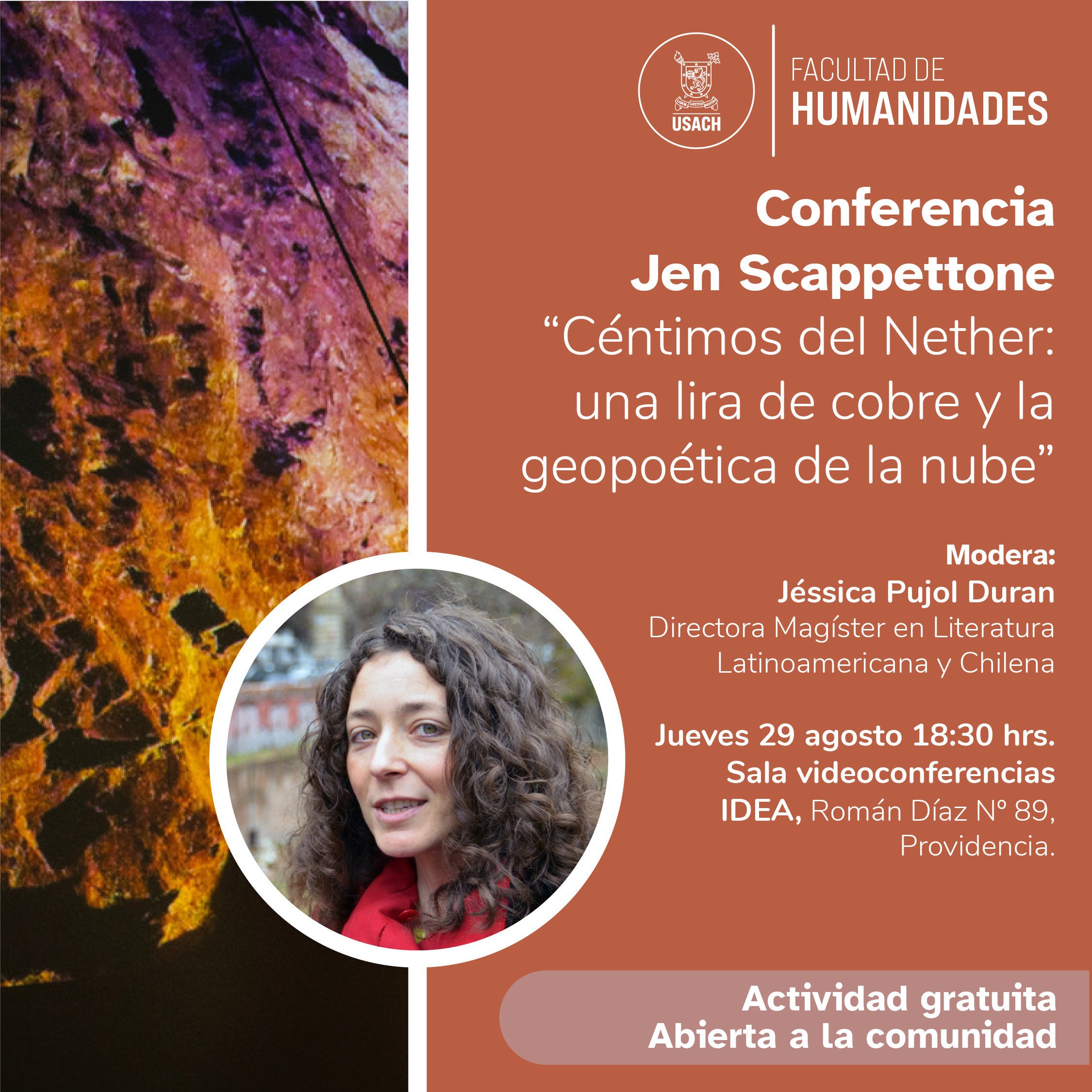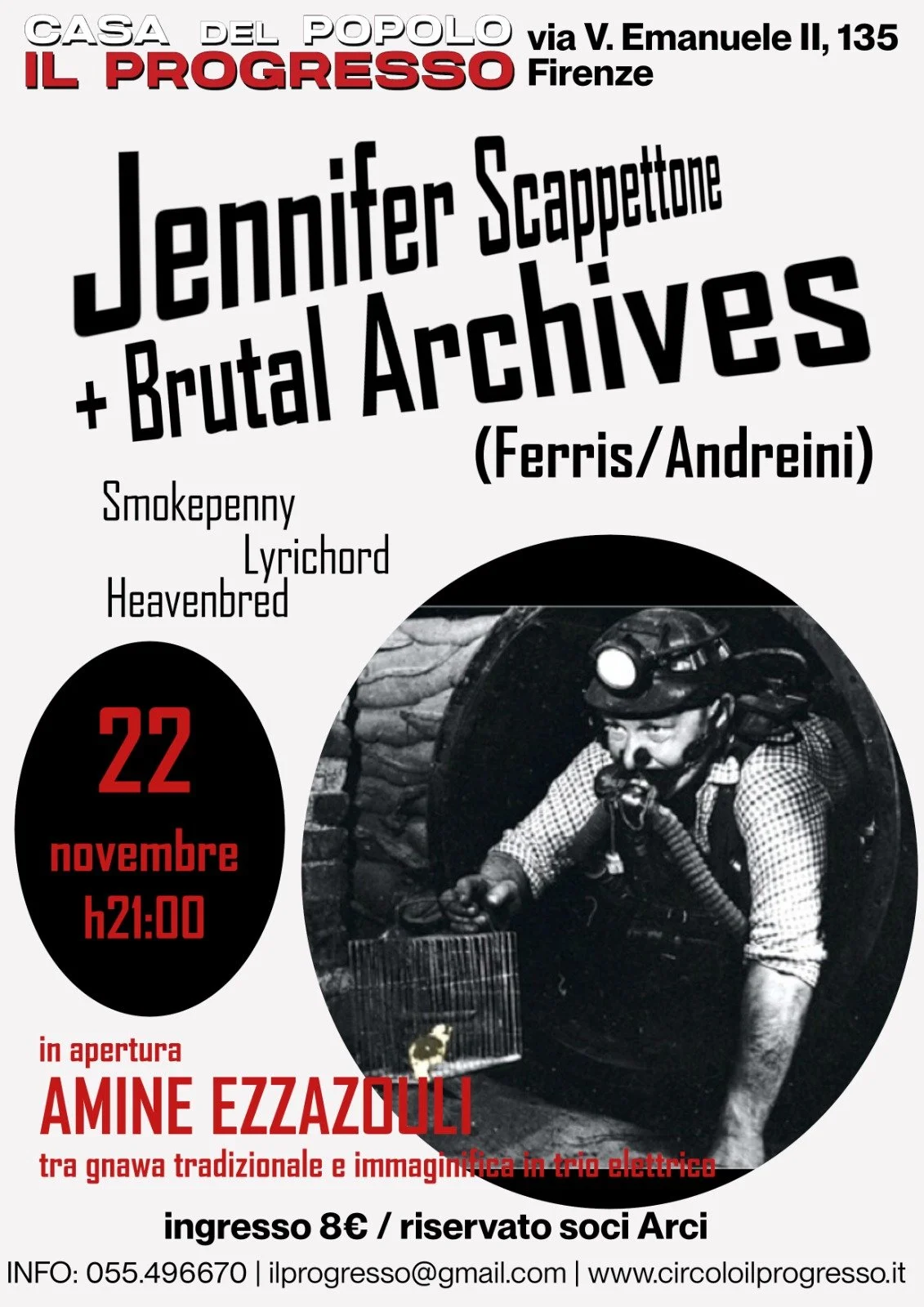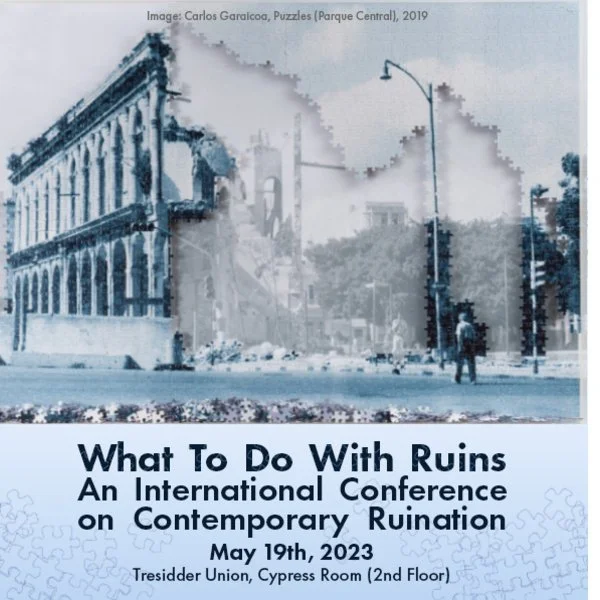NEW WRITING
by Jennifer Scappettone
SMOKEPENNY LYRICHORD HEAVENBRED; Or, Last year / By constant penetration / Encroaching on the reserve
These lyrics for a countermusical were produced by using a telegraph code book for mining companies in tandem with ongoing research into the history and future of copper exploitation.
SMELTING POT
"Smelting Pot" was produced in conjunction with the US Pavilion for the 2018 Venice Biennale of Architecture, surrounding Dimensions of Citizenship.
EXIT 43: OUTTAKES & SCORES FROM AN ARCHAEOLOGY AND POP-UP OPERA OF THE CORPORATE DUMP
A verbal/visual archaeology of a Superfund-listed landfill, and related disasters-in-waiting, from Atelos Press.
NEWLY OFF THE PRESSES in October 2025
Against a backdrop of xenophobic and ethnonationalist fantasies of linguistic purity, Poetry After Barbarism uncovers a stateless, polyglot poetry of resistance—the poetry of motherless tongues. Departing from the national and global paradigms that dominate literary history, Jennifer Scappettone traces the aesthetic and geopolitical resonance of “xenoglossic” poetics: poetry composed in the space of contestation between national languages, concretizing dreams of mending the ruptures traced to the story of Babel. As global migration, aerial bombardment, and the wireless telegraph shrank distances with brute force during the twentieth century, visions of transcultural communication emerged in the hopes of bridging linguistic difference. At the same time, evolving Fascist ideologies denied the reality of cultural admixture and the humanity of the stranger.
Authors who write xenoglossic verse occupy languages without a perceived birthright or sanctioned education; they compose in ecstatic “orphan tongues” that rebuff nationalist ideologies, on the one hand, and globalization, on the other, uprooting notions of belonging ensconced in nativist metaphors of milk, blood, and soil while rendering the reactionary category of the barbarian obsolete. Raised within or in the wake of fascism, these poets practice strategic forms of literary and linguistic barbarism, proposing modes of collectivity that exceed geopolitical definitions. Studying experiments between languages by immigrant, refugee, and otherwise stateless authors—from Baroness Elsa von Freytag-Loringhoven to Emilio Villa, Amelia Rosselli, Etel Adnan, LaTasha N. Nevada Diggs, Chika Sagawa, and Sawako Nakayasu—this book explores how poetry can both represent and jumpstart metamorphosis of the shape and sound of citizenship, modeling paths toward alternative republics in which poetry might assume a central agency.



